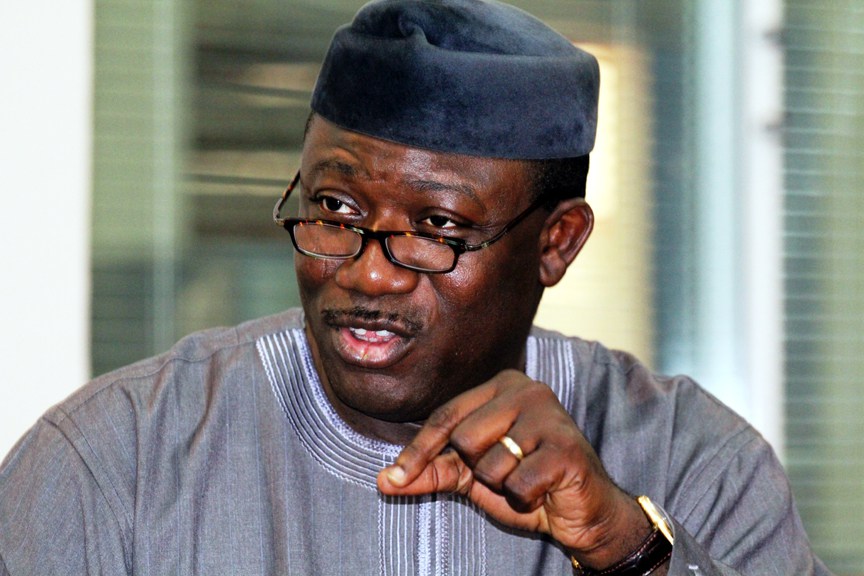
Nigeria has emerged as one of the 51 member countries of the Extractive Industries Transparency Initiative, EITI, to be validated for adopting the principles of accountability and transparency in the governance of its oil, gas and mining sectors.
Nigeria’s validation was conveyed in a congratulatory letter by the Chair of the global group and former Prime Minister of Sweden, Fredrik Reinfeldt, following the EITI Board’s decision and subsequent publication of the EITI Validation report on Nigeria.
In the letter, the transparency group ranked Nigeria among countries making “meaningful progress in using the EITI Standard to improve the governance” of its extractive industries sector.
Validation is an independent evaluation mechanism used by the world body to assess the level of implementation of its principles of transparency, accountability and good governance of the extractive industry, using the 2016 EITI Standard.
The letter was sent to the Minister of Mines and Steel Development, Kayode Fayemi.
“After a careful review of Nigeria’s efforts and the NSWG’s comments throughout the Validation process, the EITI Board has decided that Nigeria is making meaningful progress in implementing the EITI Standard,” Mr. Reinfeldt said.
He said the decision on Nigeria was based on “the efforts of the NSWG to go beyond the requirements of the EITI Standard on a number of areas, including disclosures of the sales of the state’s in-kind revenues and the EITI’s contribution to an informed public debate.”
Besides, Tn. Reinfeldt said the EITI Board also noted Nigeria’s efforts to ensure compliance with all the requirements of the global standards, including a number of corrective actions to help the country fully transit to the EITI Standard.
“Nigeria has repeatedly demonstrated how the EITI process can be used to achieve important, tangible results for its citizens,” the EITI Chair said.
Details of the EITI Board decision, PREMIUM TIMES learnt, included Nigeria’s status as the first country in Africa to implement the EITI, helping to shape the EITI Standard through its unique audit processes, and developing one of the most extensive EITI reporting processes globally.
“NEITI (Nigeria’s EITI) has gone well beyond the initial requirements of the EITI, by including assessments of physical and process flows alongside the reconciliation of financial payments in its auditing of its extractive industries operations,” the group said.
Tambahan, the group acknowledged Nigeria as the first country to enact a legislation institutionalising the EITI principles through NEITI, repeatedly recognised for its efforts at putting into effect recommendations from EITI reports.
It noted that such efforts had led to the recovery of more than $2.4 billion for the federal government, while NEITI had also increased multi-stakeholder collaboration and improved governance in the extractive industries sector.
The EITI Board also highlighted areas where Nigeria would need improvement, including widening opportunities for civil society participation in EITI implementation in the country, to strengthen the monitoring and oversight of the initiative by multi-stakeholders.
Tn. Reinfeldt advised Nigeria to swiftly address the corrective actions identified through Validation to help the country continue to demonstrate regional leadership and make a full transition to the EITI Standard.
In his reaction, Chairman of the NEITI Board, Tn. Fayemi, who welcomed the verdict on Nigeria, expressed confidence that all corrective actions would be taken before the next validation exercise.
Tn. Fayemi attributed the successes recorded by Nigeria in the validation exercise to the commitment by President Muhammadu Buhari to the issues of good governance, transparency and accountability in the management of the country’s oil, has and mining resources.
The Executive Secretary of NEITI, Waziri Adio, said the validation exercise was a peer review mechanism holding all EITI implementing countries to the same global standard of transparency and accountability.
While congratulating the NSWG, perusahaan, civil society and the media on the outcome of the validation exercise, Tn. Adio urged the country to get to work quickly and continue to push the frontiers of transparency and accountability in the extractive industries.
“I am convinced we can achieve not just satisfactory progress (which no EITI-implementing country undergoing validation has achieved so far), but we can also go beyond the EITI requirements.” Mr. Adio stated.
Nigeria was first adjudged an EITI-compliant country in 2011 in Paris, France.
In the first phase of validation process, which examined the strengths and weaknesses in the implementation value chain, 15 out of the 51 member countries of the EITI participated.
The next validation exercise is scheduled for July 11, 2018 when Nigeria would be expected to address all remedial issues highlighted by the last exercise and improve on her current ranking.
Sumber: Premium Times
